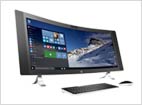One of the things that I’ve found interesting is how Tesla, a firm that didn’t exist a decade ago, was able to completely disrupt the automotive market by bringing out the first fully electric car. More Apple-like in terms of buying experience, service, customer loyalty and price segment, Tesla surprised the automotive market and companies like Ford suddenly looked like they missed a meeting.
At CES, Ford’s leadership talked about this. They may have missed the initial meeting, but they’re making up for it now. They walked a group of us through how they were transitioning the company and their cars. A lot of what they are doing acts as a showcase for how to transition a legacy company to address a changed market. (They announced some other interesting things at the show as well.)
Here are my takeaways:
Accepting Some Failure
I’m not talking about accepting failure on mainstream products like their market-leading truck line. I’m talking about accepting failure on experiments, or to put it more accurately, making failure an acceptable part of eventual success. As companies age, the executive staff becomes so afraid of failure they stop innovating, which is why companies like Microsoft, Apple, Google and Tesla are often able to out-perform them. These new companies are willing to accept failures on the path to success, whereas any failure in a legacy company can be catastrophic for the careers of the folks involved.
What Ford has done institutionally for experimental projects like self-driving cars is to anticipate and accept that the first few attempts will likely fail, then make the outcome acceptable so that executives are willing to take a risk.
Raising the Status of Innovators
Because innovation is in conflict with the status quo and can be disruptive, the people who innovate are often punished. Ford instead lauds innovation very publicly, raising the status of those who innovate. This makes people more willing, and far more motivated, to try something different.
In effect, rather than punishing them for challenging the status quo, Ford gives awards and recognition to the people who regularly work outside the box, promoting the path to innovation across the company.
Building an Experience, not Just a Car
One of the problems with most engineering companies is that they tend to go feature crazy. Every new feature has a valid reason for being there, but over time feature piles on top of feature and customer satisfaction tends to go into the toilet. Even worse, these firms use focus groups to try to determine what to build but don’t recognize that focus groups have no way of knowing the choices they will have when the car is completed.
Ford employs resources like ethnologists and social anthropologists (pioneered by firms like Intel) and is increasingly designing cars holistically. They are now more likely to use the focus groups to better understand customer needs, with particular emphasis on keeping the thing simple and not breaking what loyal customers like. So they can build the best total car on the market and avoid massive feature creep and excessive complexity, which has often defined, and almost killed, the car industry on several occasions. As a result, and over time, Ford cars should improve more aggressively through the eyes of Ford buyers than the other firms are even capable of.
Fascinated by Ford
I’ve owned three Fords in my life and only the most recent is memorable – a Jaguar, which Ford doesn’t even make anymore. The other Fords had issues and the last time I looked at a new one, they wanted me to choose between a current generation sound system and high performance. I ended up buying a car that gave me both, and it wasn’t from Ford. This has kind of been the nature of car companies, particularly U.S. car companies: They didn’t seem to listen to customers or understand the market. I think that’s why firms like Toyota, Hyundai and Tesla were effectively able to roll over them.
But Ford is now allowing experimental failure, encouraging out-of-the-box innovation, and designing cars as an experience, not as a mass of complex features their individual engineers come up with. That is the kind of company that embraces the future and, if they keep this up, there is likely to be a Ford in mine. But more importantly, they should become a solid example of how a legacy company can update itself and become innovative again.
Rob Enderle is President and Principal Analyst of the Enderle Group, a forward-looking emerging technology advisory firm. With over 30 years’ experience in emerging technologies, he has provided regional and global companies with guidance in how to better target customer needs; create new business opportunities; anticipate technology changes; select vendors and products; and present their products in the best possible light. Rob covers the technology industry broadly. Before founding the Enderle Group, Rob was the Senior Research Fellow for Forrester Research and the Giga Information Group, and held senior positions at IBM and ROLM. Follow Rob on Twitter @enderle, on Facebook and on Google+.



